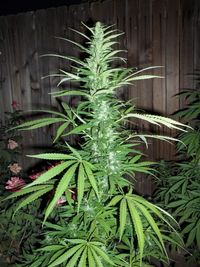Can You Grow Weed in Georgia?
In Georgia, the legal landscape for growing marijuana is highly restrictive and tightly regulated, with severe penalties for unauthorized cultivation. As of July 2025, growing marijuana for recreational or personal use is illegal, and only specific licensed entities can cultivate cannabis for medical purposes under strict state oversight. Below is a detailed breakdown of the current laws, exceptions, and consequences surrounding marijuana cultivation in Georgia.

Legal Status of Marijuana Cultivation
Georgia law prohibits individuals from growing marijuana for personal or recreational use. The state classifies cannabis as a Schedule I controlled substance, meaning unauthorized cultivation is a felony. Penalties vary based on the amount grown:
Less than 10 pounds
: A felony charge with 1-10 years in prison and fines up to $5,000.
10-2,000 pounds
: Considered trafficking, carrying a mandatory minimum of 5 years in prison and a $100,000 fine.
Over 2,000 pounds
: Harsher trafficking penalties, including up to 7-25 years in prison and fines reaching $1 million. Possessing cannabis seeds, plants, or cultivation equipment (like grow lights or hydroponic systems) can also lead to felony charges, even without mature plants. Law enforcement actively pursues such cases, and intent to cultivate can be inferred from minimal evidence.Medical Cannabis Exception
Georgia allows limited cannabis cultivation for medical purposes under the Georgia Access to Medical Cannabis Commission, established through the 2015 Hope Act and expanded by subsequent legislation. Only licensed producers can grow cannabis to manufacture low-THC (5% or less) cannabis oil for registered patients with qualifying conditions, such as epilepsy, cancer, or chronic pain. As of 2025, six licensed companies operate cultivation facilities, and two state universities (the University of Georgia and Fort Valley State University) are permitted to grow cannabis for research and medical oil production. These operations are heavily regulated, requiring secure facilities, state inspections, and compliance with strict THC limits. Individuals, even those with medical cannabis cards, are not allowed to grow their own cannabis at home.
Hemp Cultivation
The Georgia Hemp Farming Act of 2019 permits licensed farmers to grow hemp, defined as cannabis with 0.3% or less THC, for products like CBD oil, textiles, or food. Obtaining a hemp cultivation license from the Georgia Department of Agriculture involves background checks, detailed applications, and compliance with federal and state regulations. Hemp growers must test crops to ensure THC levels remain below the legal threshold, and any plants exceeding this limit must be destroyed. While hemp cultivation is legal, it is distinct from marijuana and does not permit growing high-THC cannabis.
Enforcement and Risks
Georgia law enforcement takes a hard stance on illegal marijuana cultivation. Home grow operations, even small ones, risk severe consequences, including property seizure and long-term incarceration. For example, a single plant can trigger felony charges, and larger operations may lead to federal attention. Public sentiment and search trends (based on tools like Google Trends) show growing interest in cannabis legalization, but Georgia’s laws remain conservative compared to states like Colorado or California, where recreational cultivation is permitted under specific conditions.
Future Outlook
While some states have decriminalized or legalized recreational marijuana, Georgia has not followed suit. Advocacy groups continue to push for reform, citing the success of the medical cannabis program and economic benefits of legalization. However, any changes to cultivation laws would require legislative approval and are unlikely in the near term, given the state’s cautious approach. For now, individuals interested in growing cannabis should explore legal hemp farming or monitor legislative updates for potential changes.
Conclusion
Growing marijuana in Georgia is illegal for personal or recreational use, with felony charges and significant penalties for violators. Only state-licensed entities can cultivate cannabis for low-THC medical oil, and hemp farming is permitted under separate regulations. If you’re considering cannabis-related activities, consult an attorney to understand the risks and ensure compliance with Georgia’s strict laws. For updates on cannabis policy, check trusted sources like the Georgia Department of Agriculture or legislative news outlets.
